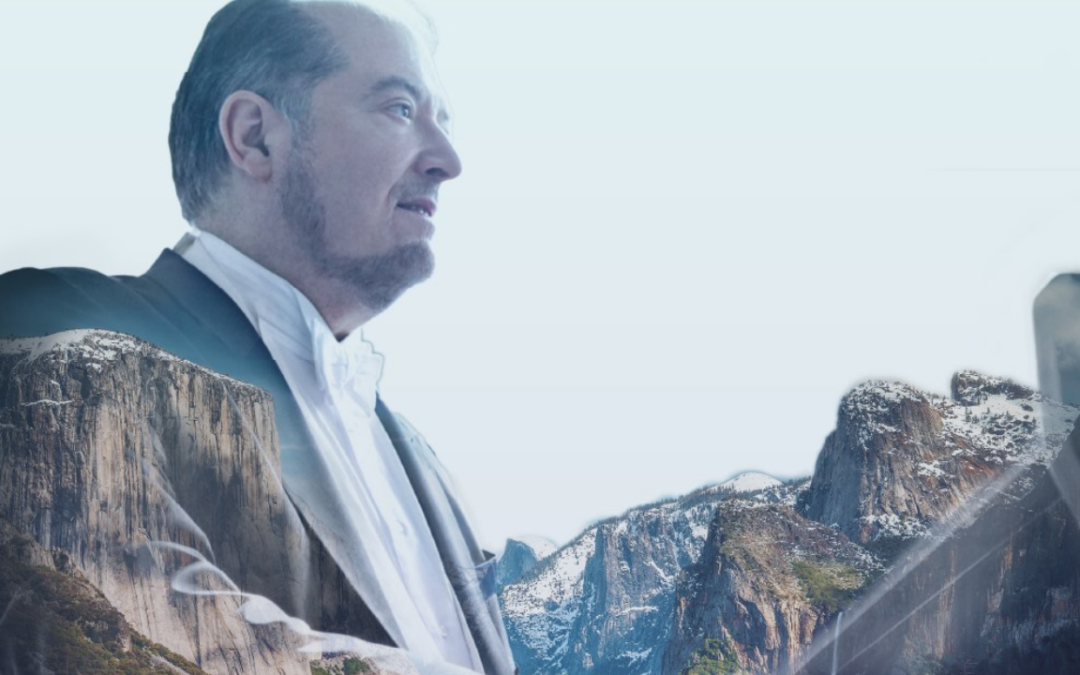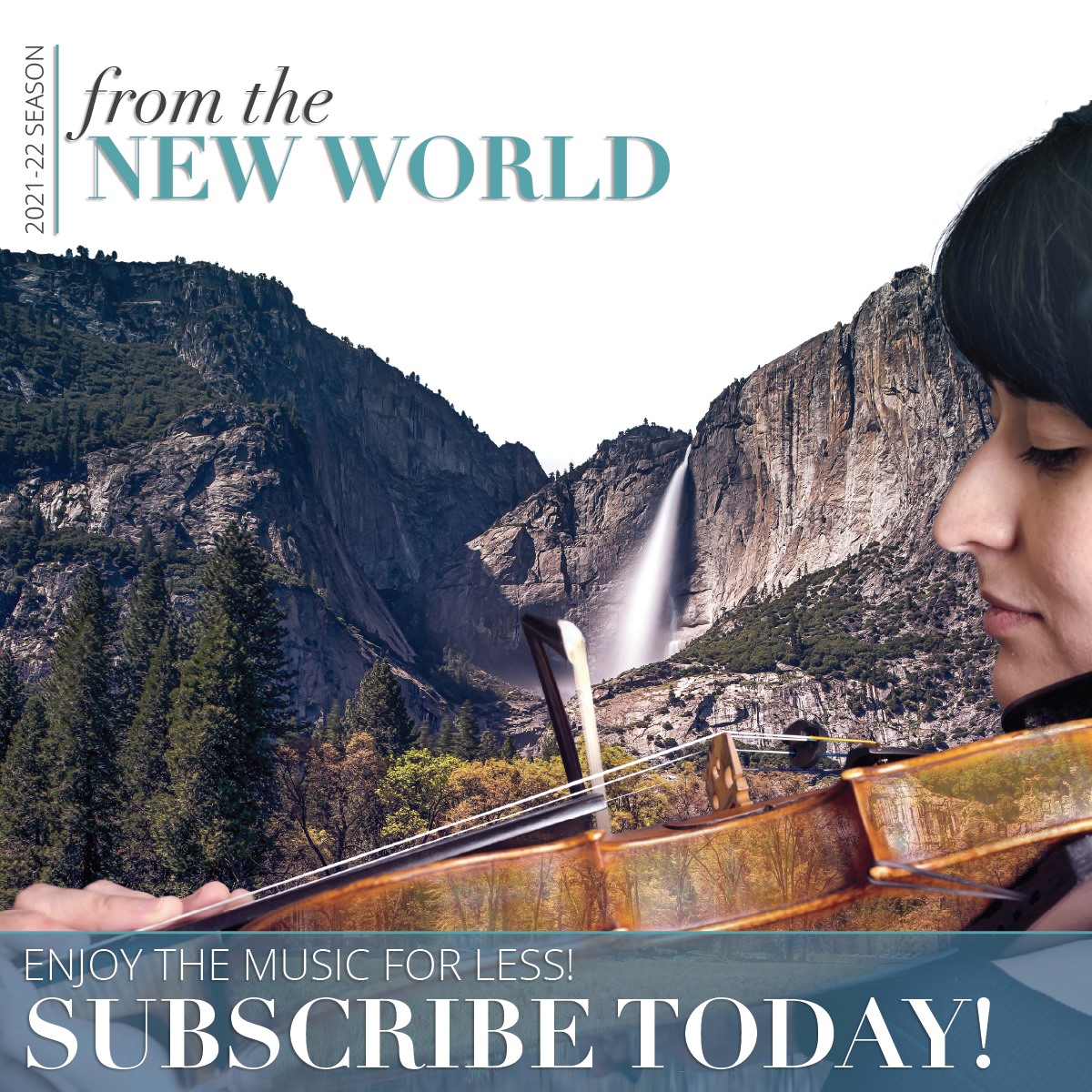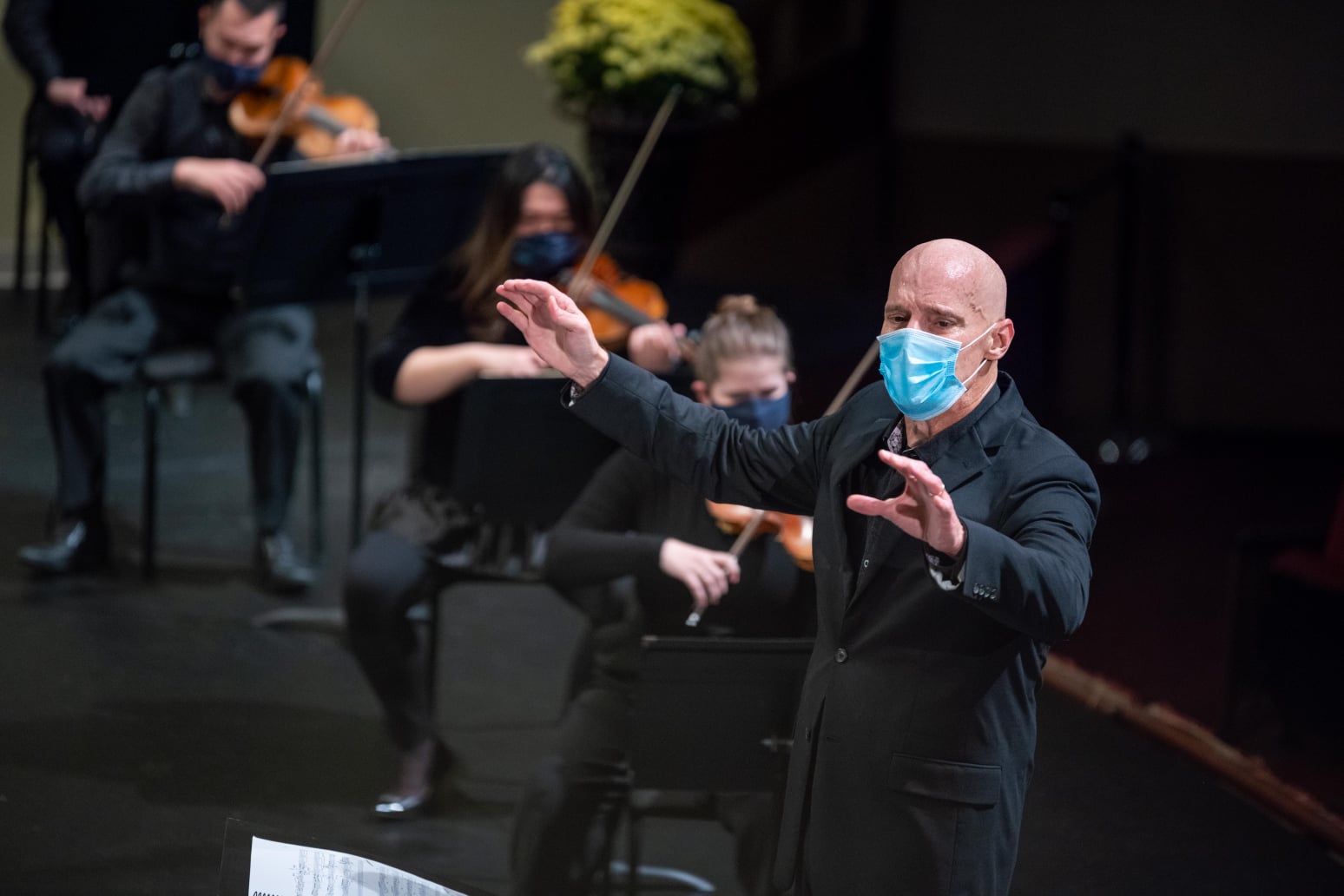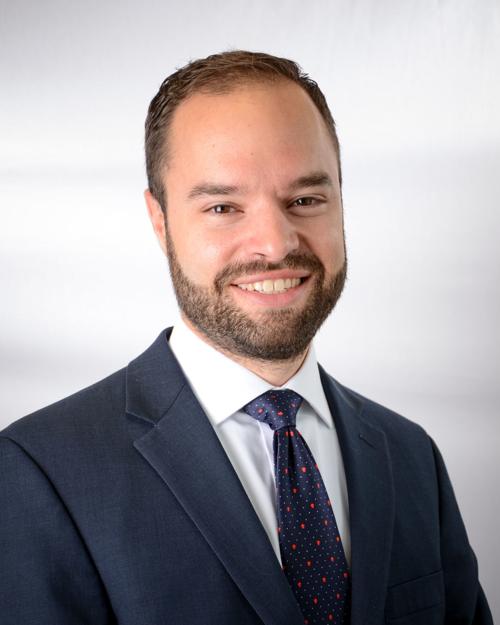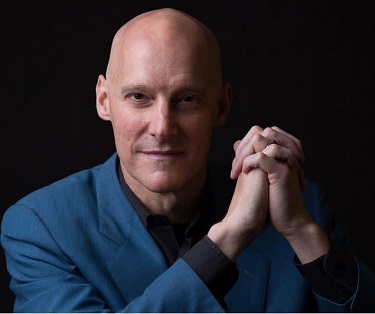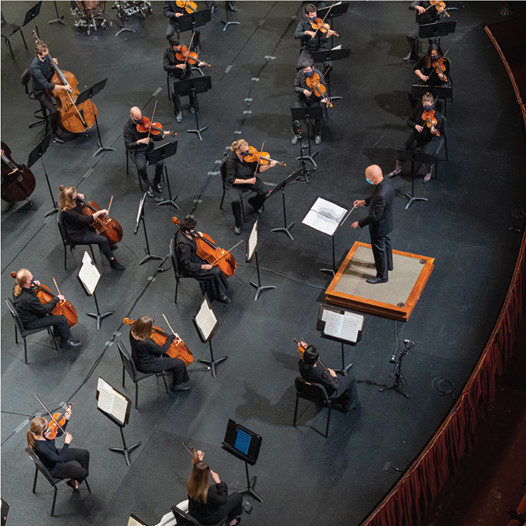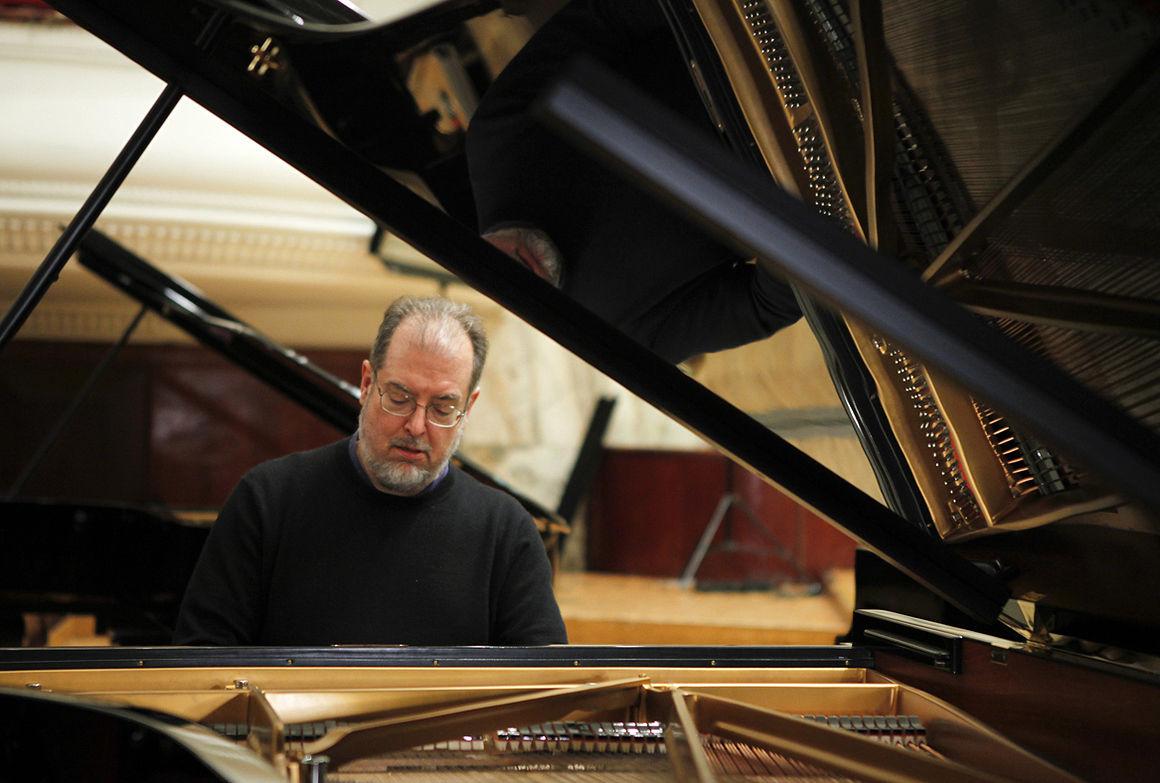It’s fitting that the last Quad City Symphony Orchestra performance before the Covid shutdown was Verdi’s Requiem, a piece written in memory of a dear friend. The first Masterworks program to welcome a full-capacity audience since then (Oct. 2-3, 2021) will feature the classic Dvorak “New World” Symphony. It’s a whole new world for sure, as the pandemic lingers on.
This weekend’s concerts – featuring world-renowned pianist Garrick Ohlsson performing Samuel Barber’s Piano Concerto – will also include a Sunday afternoon in Centennial Hall (at Augustana College in Rock Island) for the first time since March 2020.
“It just made sense for us to do the whole season in the same manner, so we just did everything at the Adler,” executive director Brian Baxter said recently of the 2020-21 season in downtown Davenport. During this time half the concerts were performed without an audience and all were offered online for up to 30 days following.
Conductor and music director Mark Russell Smith said he and the orchestra are excited to return without audience capacity limits.
“To have people clapping and to turn around and not play in an empty hall, it’s very exciting,” Smith said. “Absolutely, with a potential full house and a lot more people, the energy is going to be really great. It’s going to be an electric evening, I really think so. People who will be there will be thrilled. I’m pretty confident. That’s the question – when are people going to feel comfortable coming out? It’s anybody’s guess. We’re hoping it’s sooner rather than later.”
The first concert, they purposely wanted “to start with a big bang,” Smith said. “And with one of the greatest pianists on Earth.”
The first Masterworks concerts of the 107th season will be Saturday, Oct. 2 at 7:30 p.m., and Sunday, Oct. 3 at 2 p.m., featuring acclaimed piano soloist Garrick Ohlsson. The program will be comprised of Dudley Buck’s Festival Overture on the American National Air, Barber’s Piano Concerto, Op. 38, and Antonin Dvorak’s Symphony No. 9, Op. 95, “From the New World.”
From the orchestra’s point of view, Smith and the musicians still gave their all in concerts where there were no audiences at the 2,400-seat Adler Theatre.
“Without question, the energy was there,” Smith said. “When there’s no audience, you’re focusing on each other. You’re focusing on each other no matter what. But part of the reason was, this was one of the few orchestras that were actually playing.”
“So much of their work was gone, so this time we had together was very special,” Smith said of the QCSO freelance players. “It was even more special because they were able to be the artists that they were when they were denied that opportunity in so many other arenas. And it was a reminder about how valuable art is – if souls needed touching, last year was the year when souls needed touching, on so many levels.
“To be able to commune with others, to commune with great art, and to bring beauty into a world that was pretty damn ugly, I think it was very special,” Smith said. “It gave us energy and also emboldened us, really, to think about how important it is – what we do, and to recommit ourselves to that.”
The digital access also literally made the QCSO concerts more accessible to a much greater population (outside the Q-C) than who’d ever been able to attend the concerts. Smith said his twin sisters in San Francisco and Portland, Ore., and his nephews and nieces who never saw him conduct before could watch online. “Really cool things like that, that never would have happened before,” he said.
Why Did the Show Go on for QCSO?
The QCSO has been relatively rare among U.S. orchestras in the past 18 months in its frequency of performing continuously.
“Based on my knowledge of the orchestra industry, I would say across the country, about a third of orchestras performed in some fashion,” Baxter said. “About two-thirds didn’t perform s an orchestra. I think every orchestra had individuals doing things or small, small stuff like chamber music. But we were proudly in the category of groups that found ways to do things safely — obviously, not to the fullness that we prefer.”
“I would say compared across the country, it was unusual that we were able to do what we did,” Baxter said. “It took a lot of hard work to pivot everything and get something out there that was safe, and we could keep employing musicians and weather this storm.”
“It was a real challenge, and we were pretty well-positioned to do something,” Baxter said. “I feel like small to midsize orchestras like us were best positioned. We’re more of a mid-sized orchestra and were in the best position to do something. The big orchestras had challenges doing stuff, and then the really small orchestras also did. So yeah, strange times.”
Given those prestigious orchestras like in New York, Boston and Chicago shelved all or most of their in-person concerts over the past 18 months, why did the QCSO persist in playing, even in an empty theater?
“It’s the whole organization, the board. Everybody had to be on board,” Smith said of their commitment to continue music. “From the get-go, the only thing we talked about was, how are we going to do it? Not, should we do it? How are we going to make this happen – and that was from the board, the administration, and the musicians. Any one of those entities could have put the kibosh on it, or been hesitant. Musicians absolutely were committed to doing it, and really, everybody.”
“That was a real testament to, I think, the spunk and the spirit of the organization,” he said. “We didn’t hide ourselves; we didn’t run away from it. Of course, it was difficult and there was a big learning curve. The first time you play and the trumpets are like 100 feet away from you…We got better, after the first concert, we figured out how to play socially distanced and how to solve these technical, logistical problems.”
“They substituted smaller Beethoven pieces in place of much bigger previously planned works, but they were still a satisfying challenge,” Smith said. “It’s hard enough to play when you’re close together, much less spread out. They did a great job, and the spirit was always there. We had to rehearse for half an hour then take a break for the air to circulate. Everybody was just so cool about it; they were so happy to be there making music. We did it, and nobody complained,” he marveled.
Programming the new season
The new season is themed “From the New World,” which was intentional, Smith said.
“We talked about what kind of statement we’d make when we come back, and it’s a new world,” he said. “We’re hoping it’s a new post-Covid world. With Delta variant, it hasn’t played out exactly like that. We’re trending that way and it’s a super-strong statement to make. And we put Garrick Ohlsson on the opening concert, a powerhouse. He’s the huge star.”
The 1962 Barber concerto “is so great and so underappreciated,” the conductor said. “That’s from the new world too – it won the Pulitzer Prize, it’s a great American work that I think is underplayed.”
“Knowing how he plays this piece and knowing how the audience will react to this piece, even though they don’t know it,” Smith said of Ohlsson. “It’s an electric piece, like Rachmaninoff and Prokofiev, with Samuel Barber’s edge and kind of American spunk. It’s really virtuosic and thrilling, and he plays it so well. I wanted this piece, but I specifically wanted him and this piece together.”
The first program is definitely all-American, which is meaningful for the orchestra and audiences. Smith noted Dvorak liked Spillville, Iowa (where he spent the summer of 1893) better than New York. Iowa was America to him much more than New York.
“What I like about the opening program is, everybody knows the New World Symphony, so it’s comfort on a lot of levels,” Smith said. “It’s American; it’s about us. It’s Native American music; it’s African-American spirituals. And it’s super familiar. And the Barber is super American, but it’s unknown. And the opening piece is a surprise, which I can’t tell you.”
The new season also includes the long-delayed world premiere of the opera “Karkinos,” with a smaller orchestra at the Moline High Bartlett Performing Arts Center. With Living Proof Exhibit, the QCSO commissioned local composer and Augustana music professor Jacob Bancks to create an opera that will provide hope and celebration for those with cancer and all who love them.
After this weekend, the new season schedule (not including chamber music concerts) includes:
Nov. 6-7:
ENGELBERT HUMPERDINCK Prelude to Hänsel und GretelMICHAEL ABELS Frederick’s FablesWILLIAM GRANT STILL Poem for OrchestraPYOTR ILYICH TCHAIKOVSKY Romeo & Juliet, Fantasy-Overture
Nov. 20 (2 and 7:30 p.m.):
“Harry Potter and the Goblet of Fire” in Concert
Dec. 4-5:
EDWARD ELGAR Serenade for Strings, Op. 20 RICHARD STRAUSS Horn Concerto No. 1, Op. 11 BENJAMIN BRITTEN Serenade for Tenor, Horn, & Strings WOLFGANG AMADEUS MOZART Symphony No. 36, K. 425 “Linz”
Feb. 6-7, 2022:
ANTON BRUCKNER Symphony No. 8
Feb. 12:
Living Proof Exhibit Opera: “Karkinos” by Jacob Bancks
March 5-6:
CHEN YI Duo Ye WOLFGANG AMADEUS MOZART Violin Concerto No. 4, K. 218 ROBERT SCHUMANN Symphony No. 2, Op. 61
April 2-3:
JOHANN STRAUSS JR. Frühlingsstimmen, Op. 410 “Voices of Spring”JENNIFER HIGDON Viola ConcertoSAMUEL BARBER Symphony No. 1, Op. 9OTTORINO RESPIGHI Pines of Rome
May 14:
Disney’s “Frozen” in Concert
The QCSO may offer digital access this season, but Baxter isn’t sure which ones and how many concerts. “We were really proud of that product. I mean, I think they looked and sounded really good,” he said.
All QCSO musicians, staff and volunteers have been fully vaccinated against Covid, and all audiences will be required to wear face masks, regardless of vaccination status. Facial coverings will be required for all indoor QCSO concerts as long as community transmission remains substantial or high in both or either Scott and Rock Island counties, according to the CDC COVID Data Tracker.
Once both counties’ transmission rates become moderate or low, masks will be optional for vaccinated individuals and strongly recommended for unvaccinated people.
For tickets and more information, visit www.qcso.org.
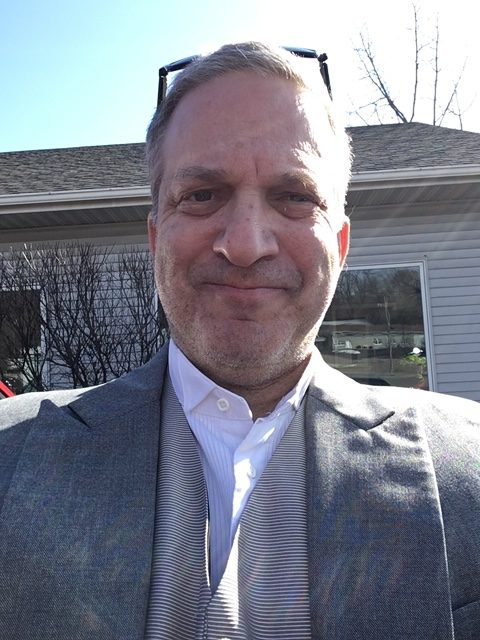
Jonathan Turner loves music and loves writing, so The Echo is a harmonious marriage of his twin passions. A pianist for 50 years, his undergrad and grad degrees are in music from Oberlin and Indiana, and he’s an accompanist for Zion Lutheran Church, Davenport. Turner has covered the Q-C arts and culture scene since 1995, including for the Dispatch-Argus and Quad-City Times, and for QuadCities.com and WVIK since March 2020.

